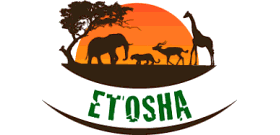 Namibia’s Etosha National Park Implements Total Drone Ban: New Rules for Safari Tourists
Namibia’s Etosha National Park Implements Total Drone Ban: New Rules for Safari Tourists
Travel agents across Africa should be aware of a significant policy change at Namibia’s iconic Etosha National Park. The Ministry of Environment, Forestry and Tourism has enacted a complete ban on all drones within the park, effective immediately. This new regulation requires all visitors to leave their drones at the entrance gates upon arrival, retrieving them only upon departure. This shift marks a significant change for photography enthusiasts and underscores the growing need for travel agents to stay informed about evolving park regulations.
This decisive move comes in response to a surge in unauthorized drone activity, which has sparked concerns about security and caused disturbances to both wildlife and visitors. Previously, drone usage was permitted within Etosha, but only under stringent conditions requiring explicit permission from park management. However, repeated violations of these rules have prompted authorities to implement a blanket ban, prioritizing the preservation of the park’s tranquility and the safety of its inhabitants.
This stricter approach aligns with a broader trend across major African safari destinations. A comparison of drone policies reveals a shared commitment to minimizing technological intrusion in these sensitive environments. While some parks, like the Serengeti and Masai Mara, allow restricted drone use with permits, others, such as Kruger National Park, have also implemented complete bans. This regional context highlights the increasing importance of responsible tourism practices and the need for travel agents to provide clients with accurate and up-to-date information.

For travel agents specializing in wildlife photography tours, this ban necessitates a shift in advising clients. While drones have become popular tools for capturing stunning aerial footage, alternative photography equipment must now be considered. Travel agents should guide clients towards traditional camera equipment, such as telephoto lenses and tripods, emphasizing the ethical considerations of wildlife photography and the importance of respecting park regulations. This presents an opportunity to promote responsible tourism and showcase alternative ways to capture memorable safari experiences.
The timeline of Etosha’s drone policy reflects a gradual tightening of restrictions. Initially, drones were permitted with prior authorization, allowing for controlled usage within the park. However, the increasing difficulty in managing unauthorized flights led to the current complete ban. This evolution underscores the challenges faced by park authorities in balancing technological advancements with conservation efforts.
The impact of this ban extends beyond photography enthusiasts. By eliminating drone activity, Etosha aims to create a more serene and undisturbed environment for all visitors. This enhances the overall safari experience, allowing guests to fully immerse themselves in the natural beauty and tranquility of the park. Travel agents can leverage this aspect to promote Etosha as a destination that prioritizes authentic wildlife encounters and responsible tourism.
This policy change presents both challenges and opportunities for the African travel trade. While it requires adjustments in advising clients about photography equipment, it also reinforces the commitment to sustainable tourism practices. By staying informed about these evolving regulations and adapting their services accordingly, travel agents can continue to offer exceptional safari experiences while contributing to the long-term preservation of Africa’s natural wonders.
